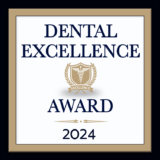
1. Only Sugar Causes Cavities
While sugar is a major contributor to tooth decay, it is not the sole culprit. Starchy foods like bread and chips can also contribute to cavities if they get stuck in between teeth. Acidic foods and beverages can also damage your enamel, leading to cavities. It is Important to limit these foods when possible, and practice good hygiene practices to protect your teeth.
2. Brushing Harder is Better
Many people believe that brushing vigorously will result in cleaner teeth. However, this can actually damage the enamel and gums leading to further problems for your oral health. It is important to brush gently in a circular motion to effectively remove plaque and bacteria. Most electric toothbrushes are excellent options to help maintain good brushing habits.
3. Flossing is Optional
Some individuals believe that flossing is not necessary if they brush their teeth regularly. Flossing, however, helps remove plaque and food particles from areas that a toothbrush cannot reach, preventing gum disease and tooth decay. Even if you use mouth wash, you will still need to floss to remove plaque deposits between the teeth and below the gum line.
4. Mouthwash Can Replace Brushing
Mouthwash is necessary and a great addition to a dental routine, but it should never replace brushing. Brushing removes plaque and food debris, while mouthwash provides additional benefits like freshening breath and reducing bacteria.
5. Whiter Teeth are Healthier Teeth
While white teeth may be aesthetically pleasing, they do not necessarily indicate good oral health. Tooth color can vary due to genetics, age, and lifestyle factors. It is more important to focus on maintaining good oral hygiene practices. People who improperly use whitening products can actually damage their teeth and cause their mouth to become extremely sensitive.
6. Baby Teeth Don’t Need to be Taken Care Of
Some parents believe that baby teeth are not as important as permanent teeth since they will eventually fall out. However, baby teeth play a crucial role in speech development, proper nutrition, and guiding permanent teeth into place. Spacing in your child’s mouth can be impacted by the care of their baby teeth. Cavities in baby teeth are not impossible. If your child does not practice good oral health care, they can be susceptible to the same health risks you can face as an adult.
7. Brushing Once a Day is Sufficient
Brushing once a day is better than not brushing at all, but it is not sufficient to maintain optimal oral health. Dentists recommend brushing at least twice a day for two minutes each time. This is the best way to help reduce the buildup of plaque.
8. Dental Cleanings are Unnecessary if There are No Problems
Even if you don’t experience any dental issues, regular dental cleanings are still important. Dental professionals can identify early signs of problems and provide preventive care. During dental cleanings, your dentist will do a full examination, including x-rays, visual inspections, checking your gum health, and inspecting your enamel. If issues are identified, your dentist can work with you on a treatment plan. Also, cleanings help protect your teeth and make you mouth feel clean.
9. Chewing Gum is as Effective as Brushing
Chewing gum can stimulate saliva production, which helps neutralize acid and clean teeth. However, it should not replace brushing and flossing as it cannot remove plaque and bacteria effectively. Another thing to consider is that some gums contain sugar, which can actually lead to tooth decay over time.
10. Brushing Immediately After Eating is Best
While it is important to brush after meals, waiting for at least 30 minutes is recommended. This allows saliva to neutralize the acid produced by bacteria, reducing the risk of enamel erosion.
11. All Toothpastes are the Same
Toothpaste comes in various types and formulations. It is important to choose a toothpaste that meets your specific oral health needs, such as fluoride toothpaste for cavity prevention. If you are not sure what toothpaste is right for you, consult your dentist who can help recommend the best options for you.
12. Dental Problems Only Affect Teeth
Poor oral health can have a significant impact on overall health. Gum disease has been linked to various systemic conditions like heart disease, diabetes, and respiratory infections. Your mouth is often an earlier indicator of other health problems. During an evaluation, your dentist may see concerns and refer your primary care physician to look into further.
By debunking these common misconceptions, individuals can make informed decisions regarding their oral care routine. It is crucial to prioritize regular brushing, flossing, and dental check-ups to maintain optimal oral health and prevent dental issues in the long run. Remember, accurate information and proper oral care practices are key to a healthy smile!
Start Your Journey To Better Oral Health Today
To learn more or to address any of your dental concerns, contact Shorewood Family Dental Care today. Our friendly staff can help you understand the risks associated with these and other myths and how to best practice oral care. In Shorewood, IL we are a trusted Dental care provider foy your whole family.




